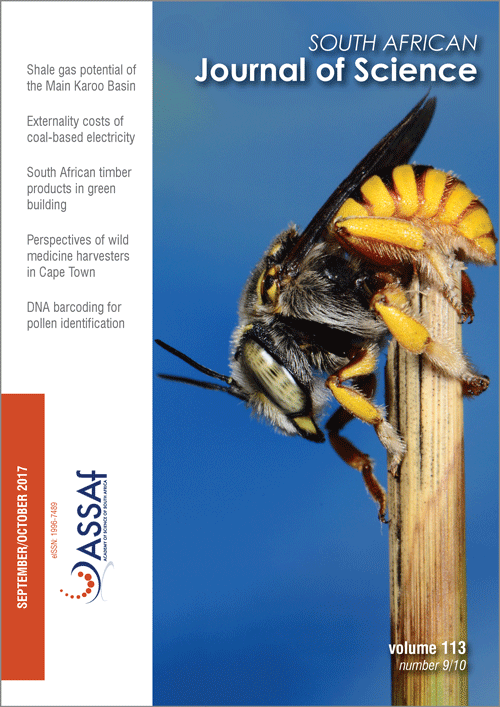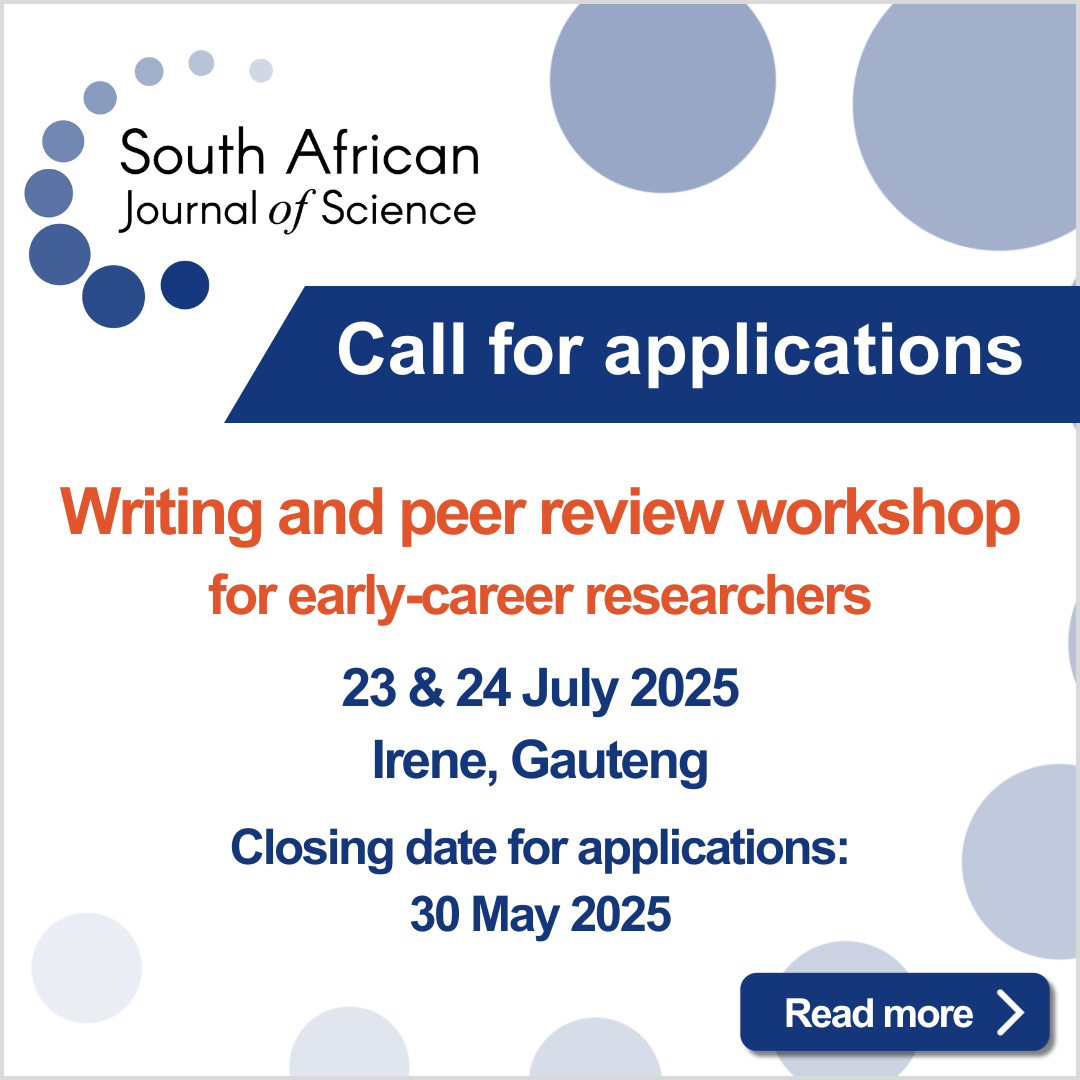Perspectives of wild medicine harvesters from Cape Town, South Africa
DOI:
https://doi.org/10.17159/sajs.2017/20160260Keywords:
conservation, wild harvest, sustainability, conflict, medicinal plantsAbstract
Cape Town is a fast-growing cityscape in the Cape Floristic Region in South Africa with 24 formally protected conservation areas including the World Heritage Table Mountain National Park. These sites have been protected and managed as critical sites for local biodiversity, representing potentially one-third of all Cape Floristic Region flora species and 18% of South Africa’s plant diversity. Cape Town is also inhabited by a rapidly growing culturally and economically diverse citizenry with distinct and potentially conflicting perspectives on access to, and management of, local natural resources. In a qualitative study of 58 locally resident traditional healers of distinct cultural groups, we examined motivations underlying the generally illicit activity of harvesting of wild resources from Cape Town protected areas. Resource harvester motivations primarily link to local economic survival, health care and cultural links to particular resources and practices, ‘access for all’ outlooks, and wholesale profit-seeking perspectives. We describe these motivations, contrast them with the current formal, legal and institutional perspectives for biodiversity protection in the city, and propose managerial interventions that may improve sustainability of ongoing harvest activities.
Significance:- The study reveals, for the first time in the Cape Floristic Region, informal economy viewpoints on terrestrial nature and how its direct use has important economic and cultural roles – specifically in wild medicine harvesting and trade.
- We contrast the formal and informal approaches to nature conservation in the city and propose new considerations for conservation managers.
Downloads
Published
Issue
Section
License

All articles are published under a Creative Commons Attribution 4.0 International Licence
Copyright is retained by the authors. Readers are welcome to reproduce, share and adapt the content without permission provided the source is attributed.
Disclaimer: The publisher and editors accept no responsibility for statements made by the authors
How to Cite
- Abstract 708
- PDF 867
- EPUB 213
- XML 249
- Supplementary file 249













.png)